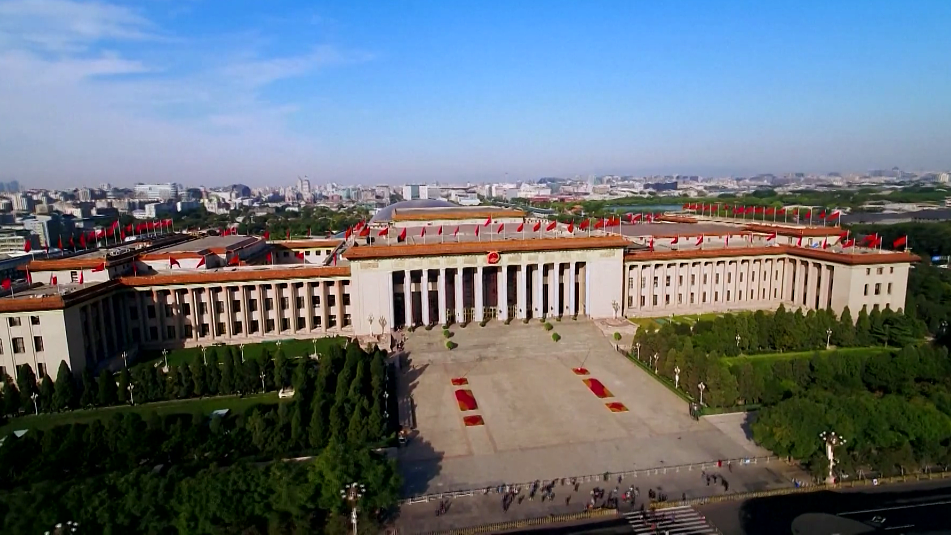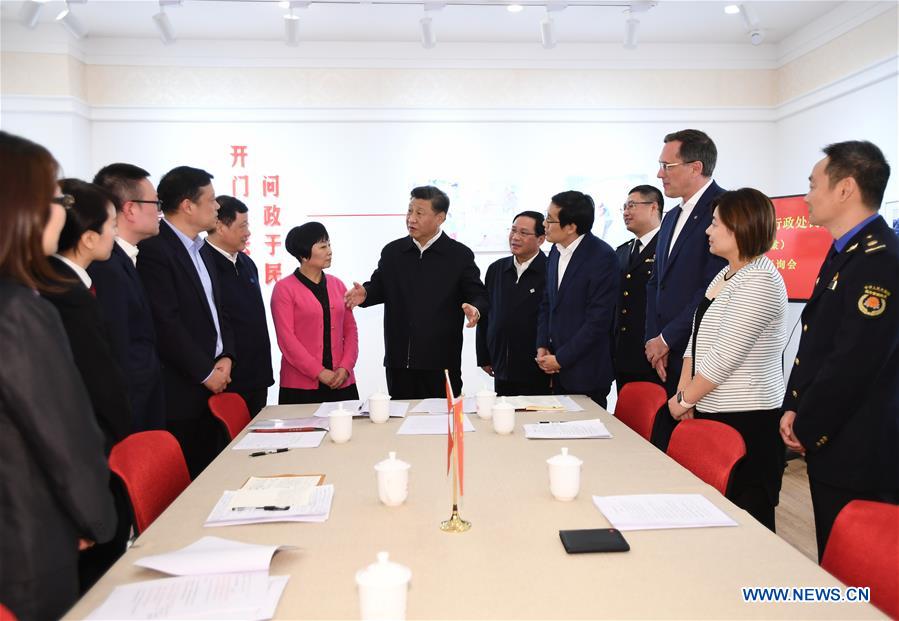
The Great Hall of the People in Beijing, China. /CFP
The Great Hall of the People in Beijing, China. /CFP
Editor's note: Josef Gregory Mahoney is a professor of politics at East China Normal University. The article reflects the author's opinions and not necessarily the views of CGTN.
The German philosopher Georg Wilhelm Friedrich Hegel asserted there are special human values that are transhistorical ideals that orient our senses of justice and progress. He called these "concrete universals," and while many debates which values specifically deserve the label, most would agree that democracy is one of them.
The tricky thing about concrete universals, however, is that they are not necessarily concrete or universal. In other words, if we use democracy as an example, neither the ideal democracy nor attempts to establish it can be the same everywhere. In part this is because different cultures in different periods of their development might idealize democracy differently; but it’s also due to the fact that idealization is not the same as material realization.
Although powerfully influenced by Hegel, Karl Marx rejected idealism for materialism. Above all, he rejected the deceptive and exploitative idealisms of bourgeois democracy that privileged elites and private property rights. Rather, he called for true, mass-oriented, people-oriented democracy, one that would achieve the socialist liberation of the proletariat.
In 2007, the idea of "whole process democracy" entered Chinese political theory, and during the sixth plenary session of the 19th Central Committee of the Communist Party of China (CPC) in November 2021, the concept was consolidated. Just a month later, the State Council Information Office of China published a new white paper titled, "China: Democracy That Works." Quite similar to the Hegelian concept of a concrete universal, the paper directly acknowledges "humanity's universal desire for democracy" and how this desire has "fueled the development of the country and driven the revitalization of the nation”
More fundamentally, however, China follows a Marxist, historical materialist approach, and the white paper reflects this. It states: "As a populous country long plagued by weak economic foundations, China strives to strike a balance between democracy and development. The priority always rests with development, which is facilitated by democracy and in turn boosts the development of democracy". Elsewhere, the paper uses the term "concrete," but always to refer to material results
In other words, China isn't interested in democracy that rests on political fantasy. Rather, it's interested in real development and the growing, real democracy that follows close at hand. As one speaker said at a conference hosted by the Chinese Academy of Social Science on December 4-5, where whole process democracy was discussed, "We shouldn't focus on democracy from the perspective of the campaign promise; rather, we should emphasize promise fulfillment.”
China's real democracy is one that that has lifted 770 million people out of poverty over the past 40 plus years and eliminated extreme poverty altogether. It has secured the health and sovereignty of approximately 20 percent of the world's population, and done so at time when others have seen their idealist democracies mired in polarization, failed governance, economic instability and growing inequality along with various forms of domestic and international conflict that bear little practical resemblance to democracy at all.
Other conference speakers stressed how China's whole process democracy emphasizes solidarity instead of separation. It seeks to resist the sort of deficits that are plaguing other societies, including the United States, most especially the deficits of trust, peace and security.
Indeed, as another speaker put it, Washington still claims to be the city on the hill, but U.S. democracy is seriously ill, pointing to the attack this year on the Capitol, the gross failures in governance that allowed more than a half million Americans to die from COVID-19, particularly the elderly, minorities and the working class, while children lost a year of in-class instruction, and the whole society saw increased poverty, crime, drug and alcohol addictions, and suicides. What sort of democracy is that?

Chinese President Xi Jinping visits the Gubei civic center at a time a consultation meeting on a draft law was held in Changning District of Shanghai, east China, November 2, 2019. /Xinhua
Chinese President Xi Jinping visits the Gubei civic center at a time a consultation meeting on a draft law was held in Changning District of Shanghai, east China, November 2, 2019. /Xinhua
In a recent lecture given to students and faculty with the School of Marxism at Lanzhou University in Gansu Province, I argued that we should view China's whole process democracy as one of China's great gifts to Marxism, and by extension, to human freedom. It demonstrates a superior integration of theory and practice, proven by its people-oriented, results-oriented and results-achieved approaches.
I also pointed out how the concept relates to the thorough-going Party-rectification campaign that effectively addressed corruption, and let to the creation of institutional solutions promoting clean government and improved governance, including advancing the rule of law.
Whole process democracy, which includes universal suffrage, has reinforced positive political participation by the masses, improved consultative democracy (multiple levels and forms), strengthened intraparty democracy, and continued United Front democracy, achieving unparalleled advances in national rejuvenation and mass popular support.
But the value of whole process democracy is not limited to China. While China eschews telling other nations how to construct their political systems and conduct their political affairs, whole process democracy overlaps in spirit and substance with China's calls for a multipolar world, for strengthened multilateralism against the undemocratic practices associated with hegemony and unilateralism (ahem, the United States).
Whole process democracy coincides with global win-win development schemes like those promoted by the Belt and Road Initiative, with China efforts to support pandemic containment and recovery via major contributions to the World Health Organization and COVAX, and with China's commitment to promoting peace through the UN mission, providing more soldiers to peacekeeping forces than all other permanent members of the Security Council combined. Whole process democracy is also reflected in pursuing green development at home and abroad to help cut global emissions and reverse global warming.
These are the points Beijing would like everyone to keep in mind, particularly when the U.S.convenes its upcoming "democracy summit" to assert a non-existent moral high ground, particularly against China. Has everyone already forgotten all that the U.S. did over the course of its two decades in Afghanistan including its catastrophic exit this year? Is everyone ignoring America's ongoing destabilization efforts in the Middle East and Africa, its current provocations against Iran, Russia, and China? As one conference speaker pointed out, the very concept of the democracy summit—to divide the world against China and to reestablish the U.S. as the so-called "leader of the free world"—is so chock full of irony one wonders how anyone can speak such nonsense and not choke to death, not unlike George Floyd, perishing with a knee on his neck.
(If you want to contribute and have specific expertise, please contact us at opinions@cgtn.com.)

